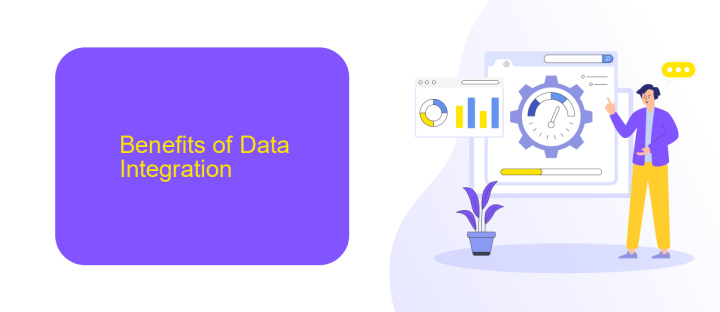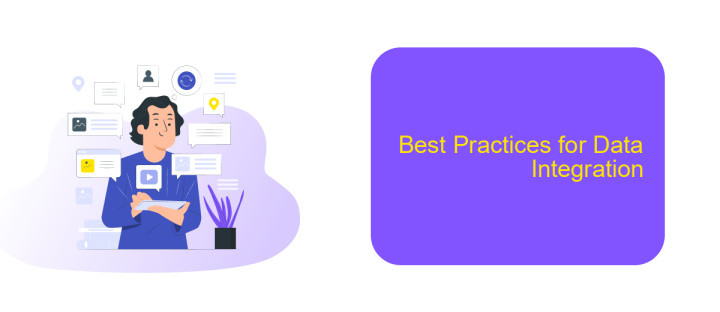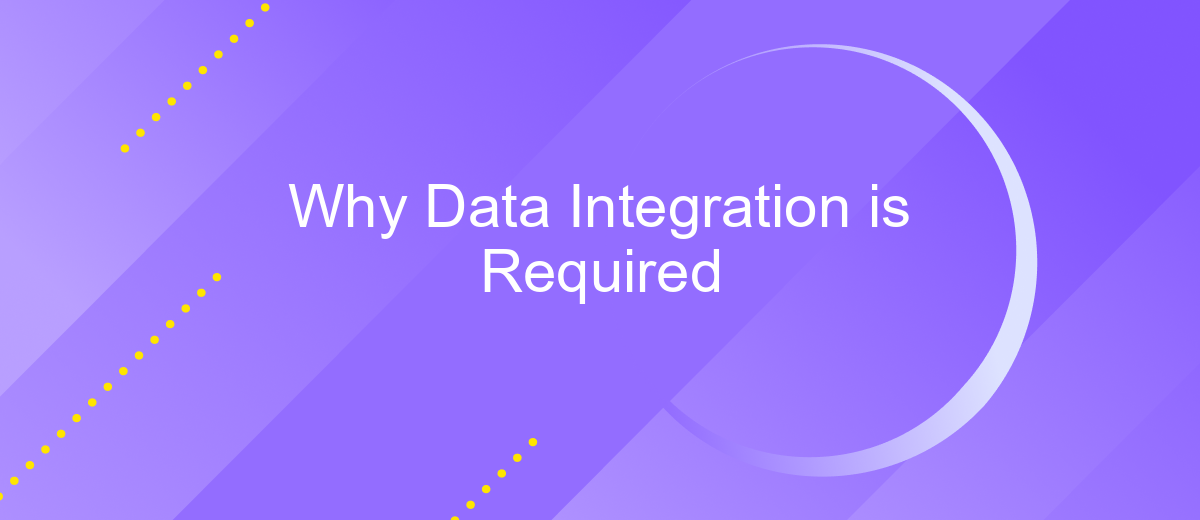Why Data Integration is Required
In today's data-driven world, businesses are inundated with information from various sources. Data integration is essential for consolidating this disparate data into a unified view, enabling more informed decision-making, enhancing operational efficiency, and driving innovation. By seamlessly merging data from multiple systems, organizations can unlock valuable insights and maintain a competitive edge in an increasingly complex landscape.
Introduction
In today's data-driven world, seamless data integration has become a critical necessity for businesses of all sizes. Efficient data integration enables organizations to combine data from various sources, providing a unified view that supports better decision-making and operational efficiency. Without proper data integration, businesses face challenges such as data silos, inconsistencies, and inefficiencies that can hinder growth and innovation.
- Consolidation of data from multiple sources
- Improved data accuracy and consistency
- Enhanced decision-making capabilities
- Increased operational efficiency
One effective solution for achieving seamless data integration is leveraging integration platforms like ApiX-Drive. ApiX-Drive simplifies the process of connecting various applications and systems, allowing businesses to automate data flows and synchronize information effortlessly. By using such services, organizations can ensure that their data is accurate, up-to-date, and readily available for analysis, ultimately driving better business outcomes.
Benefits of Data Integration

Data integration is crucial for organizations aiming to streamline their operations and make informed decisions. By consolidating data from various sources into a unified view, businesses can enhance data accuracy, reduce redundancy, and ensure consistency across all departments. This holistic approach not only improves data quality but also enables real-time analytics, leading to quicker and more strategic decision-making processes.
Moreover, data integration facilitates better collaboration among teams by providing them with a single source of truth. Tools like ApiX-Drive simplify the integration process by allowing seamless connections between different applications and platforms. This automation reduces the need for manual data entry, minimizing errors and saving valuable time. Ultimately, effective data integration leads to increased operational efficiency, cost savings, and a stronger competitive edge in the market.
Challenges of Data Integration

Data integration is a critical process for organizations, but it comes with its own set of challenges. One of the primary obstacles is data inconsistency, which arises when data from different sources do not align properly, leading to errors and misinterpretations. Additionally, the sheer volume of data can be overwhelming, making it difficult to manage and integrate effectively.
- Data Inconsistency: Variations in data formats and structures can cause significant issues during integration.
- Data Volume: Handling large volumes of data can strain resources and complicate the integration process.
- Security Concerns: Ensuring data privacy and protection during integration is paramount.
- Compatibility Issues: Different systems and software may not always be compatible, leading to integration challenges.
- Cost: The financial investment required for data integration tools and services can be substantial.
To address these challenges, organizations can leverage services like ApiX-Drive, which simplifies the integration process by providing a user-friendly platform to connect various applications and automate data workflows. By utilizing such tools, companies can overcome data integration hurdles more efficiently, ensuring seamless and accurate data flow across systems.
Best Practices for Data Integration

Effective data integration is crucial for businesses to ensure seamless data flow and accurate insights. To achieve this, it is essential to follow best practices that enhance the efficiency and reliability of data integration processes.
Firstly, clearly define your data integration goals and objectives. Understanding what you aim to achieve will guide the selection of appropriate tools and methods. Additionally, ensure data quality by implementing validation and cleansing processes before integration.
- Choose the right data integration tools, such as ApiX-Drive, which offers user-friendly interfaces and robust functionalities.
- Maintain consistent data formats and standards across all sources to avoid discrepancies.
- Regularly monitor and audit data integration processes to identify and resolve issues promptly.
- Ensure data security and compliance with relevant regulations to protect sensitive information.
By adhering to these best practices, businesses can streamline their data integration efforts, reduce errors, and derive actionable insights more efficiently. Leveraging tools like ApiX-Drive can further simplify the integration process, making it accessible even for non-technical users.


Conclusion
In today's data-driven world, the importance of data integration cannot be overstated. By seamlessly combining data from various sources, organizations can gain a holistic view of their operations, leading to more informed decision-making and improved efficiency. Data integration helps eliminate silos, ensuring that all departments have access to consistent and accurate information, which is crucial for maintaining a competitive edge in the market.
Moreover, utilizing services like ApiX-Drive can significantly simplify the data integration process. ApiX-Drive offers a user-friendly platform that allows businesses to automate data flows between different applications without requiring extensive technical expertise. This not only saves time and resources but also ensures that data is always up-to-date and readily available for analysis. In conclusion, embracing data integration and leveraging tools like ApiX-Drive can drive innovation and operational excellence, making it an essential strategy for any forward-thinking organization.
FAQ
Why is data integration important for businesses?
What are the common challenges in data integration?
How does data integration improve decision-making?
Can small businesses benefit from data integration?
What tools can help with automating data integration?
Time is the most valuable resource in today's business realities. By eliminating the routine from work processes, you will get more opportunities to implement the most daring plans and ideas. Choose – you can continue to waste time, money and nerves on inefficient solutions, or you can use ApiX-Drive, automating work processes and achieving results with minimal investment of money, effort and human resources.

